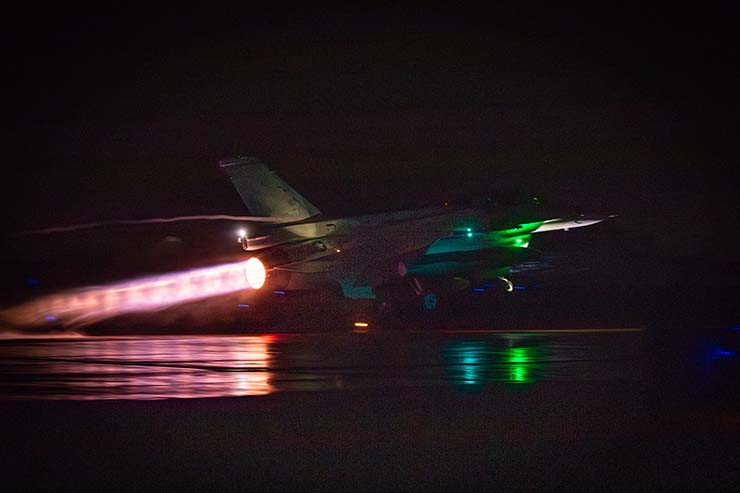GREENVILLE, S.C., Lockheed Martin recently marked a significant milestone with the departure of the first ferry cell of three F-16 Block 70 jets from Greenville, South Carolina, to Bahrain. This event highlights Bahrain’s role as the first Gulf Cooperation Council member to operate the F-16 and now the first to integrate the F-16 Block 70 variant into its fleet.
To date, Lockheed Martin has produced five F-16 Block 70 jets for Bahrain, with an additional 11 in various stages of production and testing. The initial aircraft are performing flight test missions at Edwards Air Force Base, California, with the 416th Flight Test Squadron.
OJ Sanchez, vice president and general manager of the Integrated Fighter Group at Lockheed Martin, emphasized the importance of the F-16 in the joint 21st Century Security battlespace. “With the introduction of the F-16 Block 70, we are witnessing a significant leap in fighter capabilities. The integration of this proven platform will allow the Royal Bahraini Air Force to safeguard its skies effectively and partner with allies worldwide,” said Sanchez.
“More than 3,100 F-16s are operational in 25 countries, demonstrating the F-16’s reputation as a highly reliable and versatile fighter.” Sanchez also acknowledged the enduring partnership between the U.S. government, Bahrain, and Lockheed Martin, a relationship that reflects shared values in defense, economic growth, and cultural ties.

The F-16 Block 70 jets, representing a significant leap in fighter capabilities, are at the forefront of 4.5-generation technology. These aircraft are equipped with the APG-83 AESA Radar, advanced avionics, and a modernized cockpit featuring new safety systems and sophisticated weapon platforms. Additional enhancements include conformal fuel tanks for extended range, an improved performance engine, and an industry-leading extended structural service life of 12,000 hours. A key safety feature, the Automatic Ground Collision Avoidance System (Auto GCAS), introduced in late 2014, has been instrumental in saving the lives of 13 pilots across 12 jets, demonstrating the aircraft’s superior safety and performance capabilities.
Lockheed Martin’s commitment to the Middle East spans over 50 years, focusing on regional security and advanced technology for critical missions. The current backlog of the F-16 Block 70 program includes 133 aircraft for six countries. This year, Lockheed Martin anticipates 19-21 jets will be delivered from the company’s production line in Greenville, leveraging 1LMX advanced manufacturing and digital technologies. Lockheed Martin foresees potential opportunities for up to 300 additional jets worldwide.















